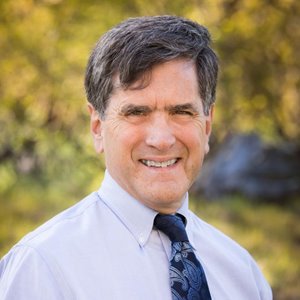NRHA donor profile: Meet Keith Mueller
 Tell us about where you live and work currently.
Tell us about where you live and work currently.I live in Lee’s Summit, Mo., so pretty close to NRHA headquarters. I work at the University of Iowa, where I’m the director of the Rural Policy Research Institute (RUPRI), which is housed in the Department of Health Management and Policy. I direct the overall RUPRI portfolio, and I’ve been directing its health activities for the last 30 years.
For the last few years my research has focused on Medicare Advantage, rural pharmacies, health insurance access, and anything related to policy. I head up the RUPRI health panel, and we look across the board at any issues that are in need of our expertise to weigh in on.
What is your connection to rural America?
I grew up in Platte County, Mo. My move into rural happened when I started teaching at the University of Nebraska. It’s still in a city, but nationally people perceive Nebraska as entirely rural, so I was identified as a rural health services and health policy person. My spouse, Gloria, grew up in rural northwest Nebraska, so I got to know that part of the state and really fell in love with it. That was my on-the-ground exposure that has made me passionate about rural America – I really value that lifestyle.
What made you want to devote your career to rural health research?
Aside from my family connection, when I started in health services research, I was invited to the very first rural health research conference in 1987. I was a national policy fellow funded by the Robert Wood Johnson Foundation, and in the network I was developing they again assumed I was rural because I was from Nebraska. At that point rural health research was a pretty new area and there wasn’t a lot of good health services research focused on rural, so I decided that given my connection with my in-laws and my love of rural it made good sense as a research focus.
 |
NRHA’s Rural Health Fellows program offers rural-specific leadership training each year |
What about your career in rural health research are you most proud of?
I’m most proud of my cumulative body of work and activities to improve rural health policy nationally. That’s a 30-year effort that includes chairing the RUPRI health panel, being president of NRHA, and being involved with NRHA’s Rural Health Congress. Over the years I’ve seen the influence of my work on things like insurance policy for Medicare and Medicaid. Nationally when major pieces of legislation have been developed, we’ve had a role behind the curtain providing analysis. We’re approaching the 30-year anniversary of the panel, so we’re looking at our influence on the development of policy.
Between what we’ve been doing at RUPRI and the evolution of NRHA since the 1980s, I think we’ve made a huge difference in achieving major milestones, like the Rural Hospital Flexibility Program that was started in 1997. We’ve had the ability as a field to bring forward a lot of research evidence as well as the strength of advocacy from NRHA and analysis from RUPRI and other centers. I think that distinguishes us from other fields. We’ve had a lot of success – I don’t want to claim that personally, but I’ve been in the middle of it all.
What inspired you to donate to NRHA’s Rural Health Foundation?
I strongly believe in what the foundation is working to achieve – strengthening rural health leadership. When I talk about rural health progress over the last 30 years, one of the key differences is the leadership within our sector is so much better than in the 1980s when I started. At that time I remember meeting with an executive from rural Nebraska who had appointed a local librarian to be administrator of the hospital. The importance of leadership is something I believe in a lot, and I’m happy to continue to donate to NRHA’s Rural Health Foundation as we work to build the future of rural leadership.
 |
NRHA’s Rural Health Fellows first meet at the association’s Rural Health Policy Institute |
Why should others consider donating to NRHA’s Rural Health Foundation?
I’m on the faculty for two of NRHA’s leadership certificate programs. I firmly believe subject-specific training is absolutely critical. When you think about transforming payment from volume-based to value-based, our CFOs in our rural health care organizations need a solid background in finance training and how that varies given what happens in rural because of volume issues and different funding streams. The same is true for administrative leadership.
Anyone who shares the same passion that I do knows we need strong rural communities in the future. If they believe that, they should give to a foundation that has that mission at its core. I don’t believe there’s one better than NRHA’s Rural Health Foundation.
To learn more about NRHA’s Rural Health Foundation and find out how you or your organization can pledge your support, visit RuralHealth.US/donate.
